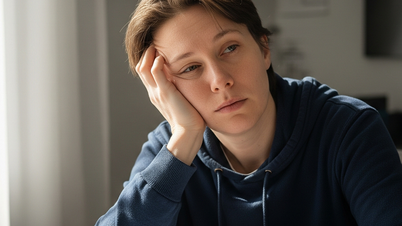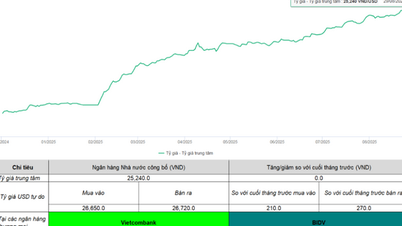Sleep quality affects many aspects of women's health. Photo: Female Sleep
At the conference, Dr. Nanette Alexander of PRIME HealthCare Medical Center (USA) discussed factors affecting sleep in women through many stages - from puberty to pregnancy, motherhood, menopause and old age.
The Relationship Between Menstruation and Sleep Health
Researchers say that as puberty begins, hormonal changes and other factors affect girls’ sleep. Menstrual cramps and premenstrual symptoms disrupt daily activities for 8-11% of girls. While menstruation is not a big deal for some girls, many struggle with premenstrual syndrome, premenstrual dysphoric disorder, and mood swings.
In studies, experts have found that the onset of menstruation is a critical transition point for sleep health in women. In part, this is because unhealthy sleep habits that begin in adolescence can impact quality of life and have health consequences later in life.
During adolescence and early adulthood, some women who use hormonal contraception, which uses hormones to regulate or prevent ovulation (pills, injections, implants, and hormonal IUDs), are 6% more likely to have sleep disturbances than women who use other forms of contraception (condoms, copper IUDs).
The relationship between sleep health, fertility and pregnancy
According to experts, regulating sleep health can help improve reproductive outcomes in women. Irregular or prolonged menstrual cycles can reduce sleep time, causing symptoms of insomnia and disrupted sleep. Such disruptions to circadian rhythms impair the hypothalamus-pituitary-gonadal axis, which can affect a woman’s fertility. Women who work shifts and have shorter sleep durations also have higher rates of miscarriage.
During pregnancy, approximately 50-75% of women will experience insomnia. Sleep disturbances during pregnancy can lead to higher rates of emergency cesarean sections, preterm birth, depressive symptoms, glucose intolerance, and gestational hypertension. Sleeping too long or too short during this period can also increase the risk of gestational diabetes.
Sleep health and motherhood
In general, compared to women who have not given birth, women who have given birth often have poorer sleep quality, and the first 3 months of a newborn's life are the time when mothers sleep the least. Therefore, having a support network is very important to reduce the burden of mental stress for mothers.
To ensure quality for women in the early stages of motherhood and beyond, Dr. Alexander recommends following these guidelines:
+ Maintain a consistent sleep/wake schedule when possible. Don't compensate for sleep by trying to sleep in during the day.
+ Keep the bedroom quiet with soft lighting.
+ Do stress-reducing exercises before going to bed such as meditation or yoga.
+ Avoid caffeinated drinks (tea, coffee) or electronic devices before bedtime.
+ Establish a personal sleep hygiene routine. For example, drink a glass of warm water/milk before going to bed to feel more comfortable.
Sleep disorders and the aging process
Age-related neurobiological changes can reduce sleep quality in older adults. Women over the age of 65 are 1.7 times more likely to have insomnia, with 40% of women over the age of 65 experiencing symptoms of insomnia.
Additionally, comorbidities such as Parkinson's disease, dementia, respiratory disease, and depression can also impair sleep quality.
NGUYET CAT (According to Rheumatology Advisor)
Source: https://baocantho.com.vn/hieu-ve-giac-ngu-giup-phu-nu-nang-cao-chat-luong-song-a190248.html




![[Photo] Hanoians stay up all night waiting for the parade rehearsal on the occasion of the Great Festival](https://vphoto.vietnam.vn/thumb/1200x675/vietnam/resource/IMAGE/2025/8/30/d14625501aee42e28bbd5227a1ff2b11)
![[Photo] International military delegation participates in rehearsal at Ba Dinh Square](https://vphoto.vietnam.vn/thumb/1200x675/vietnam/resource/IMAGE/2025/8/30/1fe13d6df1534ce8a798fa91962ed487)


![[Photo] Snail noodle dish makes Liuzhou city, China famous](https://vphoto.vietnam.vn/thumb/1200x675/vietnam/resource/IMAGE/2025/8/30/56e738ed891c40cda33e4b85524e30d3)

























































































Comment (0)